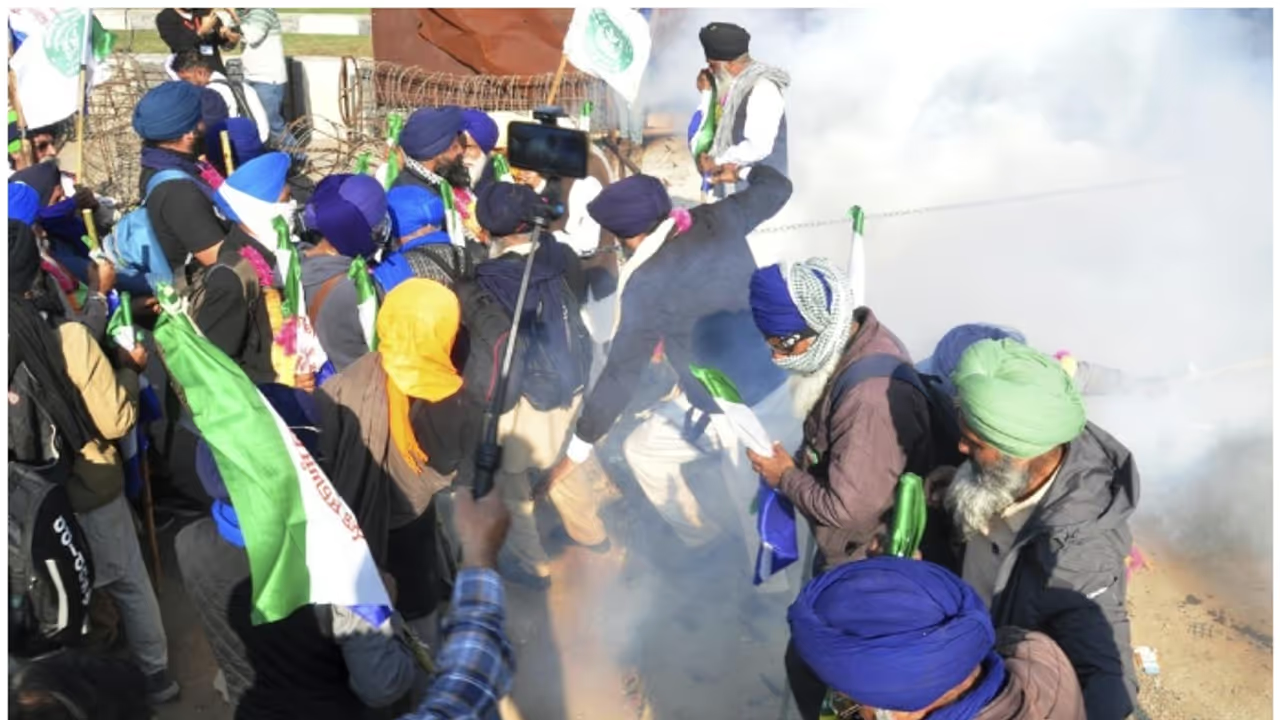Tensions escalated as farmers attempted to breach the barricades, resulting in the police using teargas to disperse the crowd. While the farmers managed to dismantle some barriers, they were unable to push past the cemented fortifications.
Farmers marching towards Delhi to demand a legal guarantee for minimum support price (MSP) for crops on Friday (December 6) called off their protest following a tense standoff with police at the Delhi-Haryana border. The demonstration, spearheaded by Samyukta Kisan Morcha (non-political) and Kisan Mazdoor Morcha, highlighted long-standing grievances against the Centre’s agricultural policies.

The march began at 1 PM on Friday but was stopped near the Shambhu border by Haryana police, who had set up multilayered barricades, including metal barriers, spikes, jersey barricades, and cemented walls. Citing prohibitory orders under Section 163 of the Bharatiya Nagarik Suraksha Sanhita (BNSS), which bans unlawful assemblies of five or more people, the police prevented the farmers from advancing.
Tensions escalated as farmers attempted to breach the barricades, resulting in the police using teargas to disperse the crowd. While the farmers managed to dismantle some barriers, they were unable to push past the cemented fortifications.
The protest stems from demands for a legal guarantee on MSP for crops, which the farmers argue is crucial for their financial security. Other demands include:
A complete waiver of farm debts.
Pension schemes for farmers and agricultural laborers.
Justice for victims of the 2021 Lakhimpur Kheri violence.
Reinstatement of the Land Acquisition Act, 2013.
Compensation for families of farmers who died during the 2020-21 agitation.
The farmers have been camping at Shambhu and Khanauri border points between Punjab and Haryana since February 13, following an earlier failed attempt to march to Delhi.
Tamil Nadu Rain ALERT: Coastal districts to witness downpours as low pressure forms in Bay of Bengal
In anticipation of unrest, the Haryana government suspended mobile internet and bulk SMS services in 11 villages of Ambala district until December 9. The move aims to curb the spread of misinformation and rumors on social media.
The farmers' march to Delhi has been an ongoing flashpoint since February. Their demands reflect unresolved tensions from the 2020-21 protests, where similar issues were raised. The protest's abrupt end highlights the complexities surrounding farmer-government negotiations and the pressing need for dialogue.
